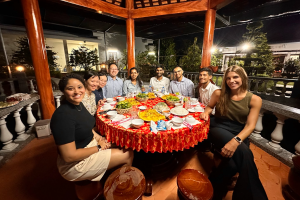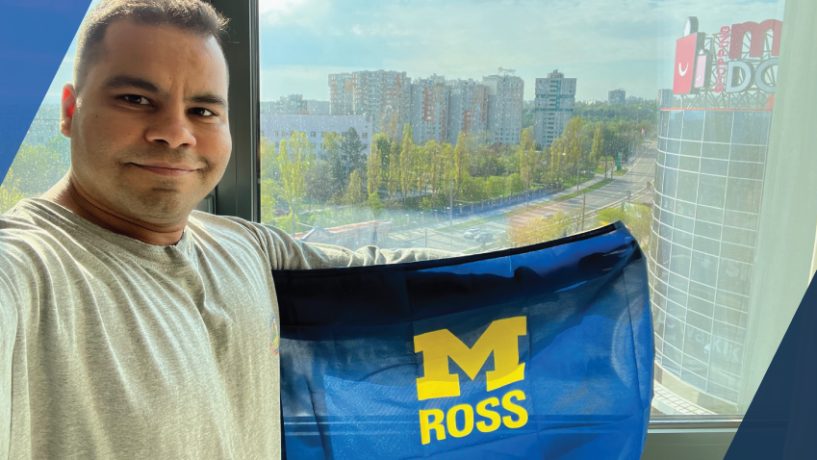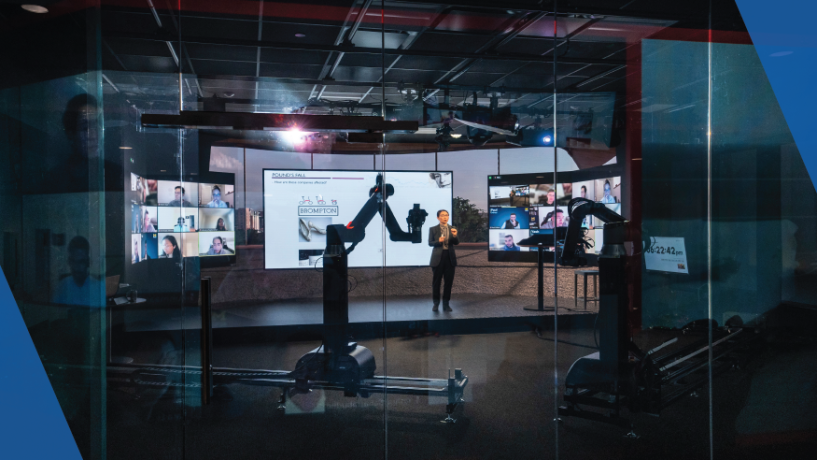How Deprioritizing Market Share Led to Success in my Vietnam MAP project

Our Online MBA Multidisciplinary Action Project had our team working for a start-up called KornRise in Tien Giang, Vietnam. Our sponsor had a lofty vision — to establish an enterprise development organization for small and medium-sized enterprises seeking essential business acumen, from accounting to cash flow mastery and beyond. Our mission? To gauge customer demand for such a service and, if the signal was strong, to devise a market-entry strategy.
Our project consisted of three parts: gathering market research and developing a customer research plan, traveling to Vietnam to conduct in-person interviews with potential customers, and then synthesizing data and creating recommendations once we got back home.
The outset was not without its share of challenges. Our OMBA team spanned three U.S. time zones, our sponsor was in Vietnam, and the parent organization was in India. Aligning on a meeting time was not easy, but we persevered. We began by collecting secondary research, engaging with key stakeholders, and carefully crafting a customer research plan. We formulated our findings and delivered an initial pitch that consisted of entering the market with a digital service and focusing on SME-rich regions.
For me, a digital approach enabled cost-efficiency, scalability, and provided clarity for market penetration. However, this plan was met with resistance from our sponsor. She insisted on an in-person service, centered in her home province, where SMEs represented less than 1% of the national total. I was confused by her opposition, but it was only through time that I came to understand and appreciate the depth of her conviction.

Once we traveled to Vietnam, we were joined by members of the parent organization, and without hesitation, we set out to interview ten businesses and four banks over a frenetic six-day period. Splitting into two teams, we conducted separate interviews throughout the day and reconvened each evening to share our insights. One of the business owners we interviewed was our sponsor's father, a prominent figure in the construction industry and one of the most influential leaders within the province. He shared with us that his company would be providing the initial capital to start this venture and also of his desire as a business leader to help the SME owners in his community by providing a service to help them increase financial literacy, thereby increasing their chances of business success.
In our conversations with him, the essence of the project became clear. It was not about market domination or maximizing profit, but a noble endeavor to uplift the community and provide support to its people. Suddenly, our sponsor's resistance to our initial digital plan made perfect sense. Her focus was on the welfare of her community, not market share. In her province, digital adoption was low, making in-person support imperative.
My initial thought of what MAP demanded was formulaic, driven by maximizing market share and profits. What I learned, however, was that the heart of success in such endeavors lay in uncovering the internal motivations of stakeholders and the intricate web of social relationships within the community. This revelation transformed our team’s perspective and allowed us to propose an idea that was not just about capturing a market, but about enriching the lives of the people who called it home.








